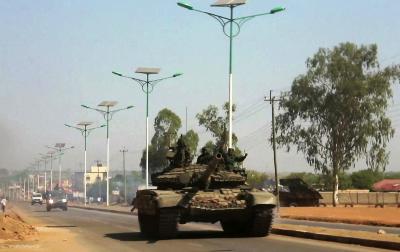South Sudanese military spending “highest” in the region
April 26, 2015 (JUBA) – South Sudan tops the region with military spending as civil war has been raging on for the past 15 months, hurting other key sectors such as health, education and infrastructure, an independent report has revealed.

South Sudan solely depends on oil revenue by 98% of its revenue of which the gross oil income is $3.38bn. After deducting $884m in payments to Sudan for the usage of the pipeline and other fees and another deduction of $781m repayments of loan to donors and international financiers, Juba remains only with $1.715bn from oil revenues.
The government therefore spends 60% of its overall net oil revenues on military to fight the opposition faction of the ruling Sudan Peoples’ Liberation Movement (SPLM-IO) led by the country’s former vice-president, Riek Machar.
This has increased from the budget announced last year to have been allocated to the security sector. In July last year during a budget presentation, former finance minister Aggrey Tisa Sabuni said a 41% of the budget was allocated to the security sector.
“I have allocated $737.8 million to the national army and $262.9 million to the police, prison and fire services,” he revealed.
“We expect that oil revenue will contribute about 80 per cent of this year’s budget,” further explained Sabuni, who was later sacked by president Salva Kiir.
The government last year purchased close to 100 Ukrainian T-72 tanks and other heavy weaponry from China; part of which was delivered through Mombasa, Kenya.
South Sudanese rebels also claim that Juba has been paying foreign troops deployed in South Sudan by neighbouring Uganda to help the regime fight against the rebels.
They also blamed government’s violations of the cessation of hostilities agreement signed on 23 January 2014 on refusal by Uganda to withdraw its troops from South Sudan as per the agreement. But the war between the two rival armies and their allies has been dragging on for 15 months as no side scores a final military victory.
Observers, however, say the war is diverting resources which would have been used to provide basic services to South Sudan’s suffering population and has stopped plans for development of the young country.
They also registered worries of economic collapse in Juba as both local and hard currencies are running out of stock. A dollar has sharply risen from 4 SSP when the war started in December 2013 to 10 SSP this year in South Sudan’s local markets.
(ST)
